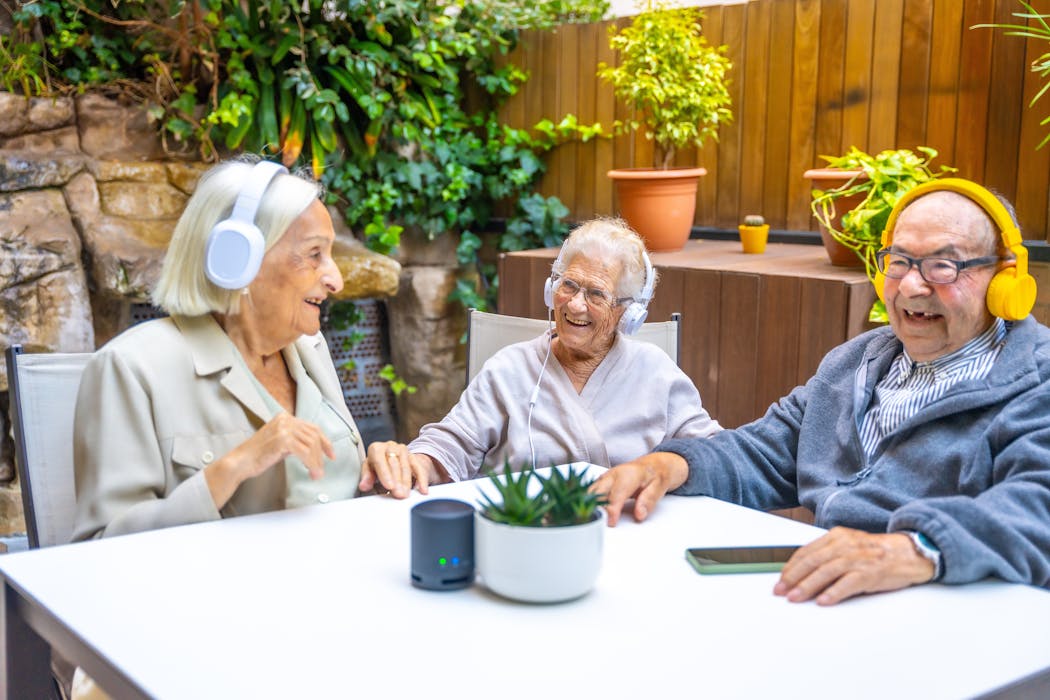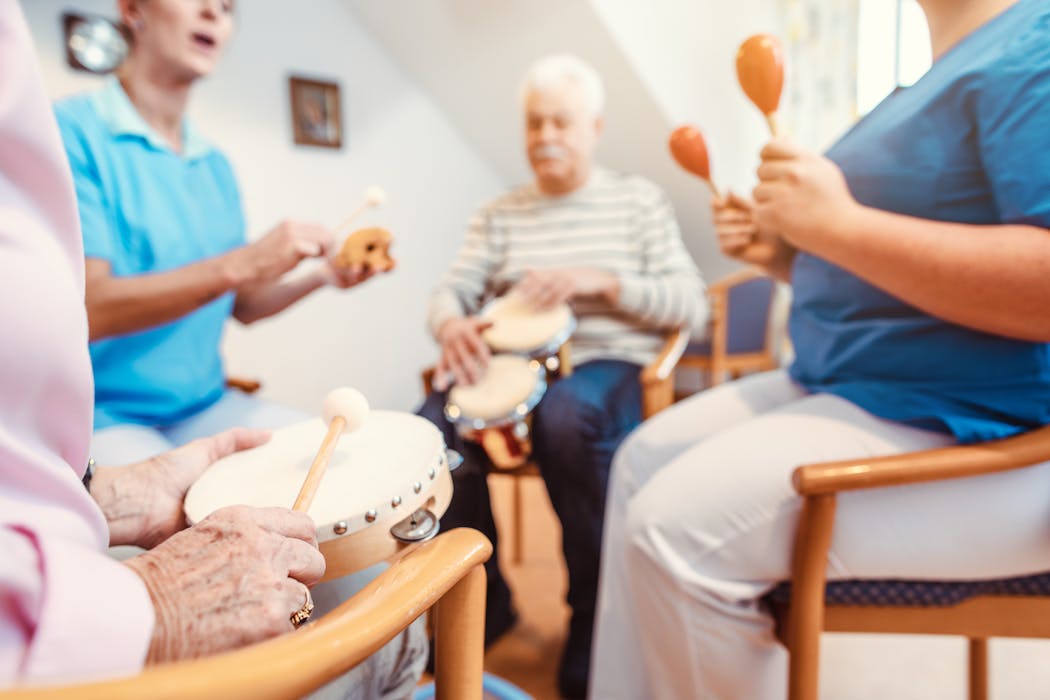Music therapy is a form of therapy that uses music to address physical, emotional, cognitive, and social needs of individuals. It has been found to be particularly beneficial for seniors, as it can help improve their overall well-being and quality of life. Music therapy for seniors can take many forms, including listening to music, singing, playing instruments, and even songwriting. It has been shown to have a positive impact on seniors with a variety of conditions, including dementia, Alzheimer’s disease, depression, and chronic pain. In this article, we will explore the physical and mental benefits of music therapy for seniors, as well as how it can improve cognitive function and emotional well-being. We will also discuss the impact of music therapy on senior health and provide tips for implementing music therapy at home for seniors.
The Physical and Mental Benefits of Music Therapy
Music therapy has been shown to have a number of physical and mental benefits for seniors. For example, listening to music can help reduce stress and anxiety, lower blood pressure, and improve sleep quality. It can also help improve physical coordination and mobility, as well as reduce the perception of pain. In addition, music therapy can have a positive impact on mental health, helping to improve mood, increase self-esteem, and provide a sense of purpose and meaning. It can also help seniors to express their emotions and communicate with others, which can be particularly beneficial for those with dementia or Alzheimer’s disease. Overall, music therapy can help seniors to feel more relaxed, engaged, and connected to the world around them.
How Music Therapy Can Improve Cognitive Function in Seniors
One of the most exciting benefits of music therapy for seniors is its ability to improve cognitive function. Research has shown that engaging with music can stimulate various areas of the brain, including those involved in memory, attention, and language. This can be particularly beneficial for seniors with cognitive impairments, such as those with dementia or Alzheimer’s disease. For example, singing familiar songs or playing familiar tunes can help trigger memories and improve recall. In addition, learning to play an instrument or participate in musical activities can help improve attention and concentration. Music therapy can also provide a sense of structure and routine, which can be helpful for seniors with cognitive impairments. Overall, music therapy has the potential to improve cognitive function in seniors and enhance their overall quality of life.
The Emotional and Social Impact of Music Therapy on Senior Health
In addition to its physical and cognitive benefits, music therapy can have a significant emotional and social impact on senior health. For example, engaging with music can help seniors to express their emotions and connect with others in a meaningful way. This can be particularly beneficial for those who may be feeling isolated or lonely. Music therapy can also provide a sense of joy and pleasure, which can help improve mood and overall well-being. In addition, participating in musical activities can provide opportunities for social interaction and connection with others, which can be particularly beneficial for seniors living in care facilities. Overall, music therapy has the potential to improve emotional and social well-being in seniors and enhance their overall quality of life.
Case Studies and Success Stories of Music Therapy with Seniors
There are numerous case studies and success stories that highlight the benefits of music therapy for seniors. For example, a study published in the Journal of Music Therapy found that participating in a music therapy program led to improvements in mood, social interaction, and overall quality of life for seniors living in a care facility. Another study published in the Journal of Alzheimer’s Disease found that engaging with music can help improve memory and cognitive function in seniors with Alzheimer’s disease. In addition, there are countless individual success stories of seniors who have experienced profound benefits from participating in music therapy programs. These stories highlight the potential of music therapy to improve the lives of seniors and enhance their overall well-being.
Incorporating Music Therapy into Senior Care Facilities
Many senior care facilities are recognizing the benefits of music therapy and are incorporating it into their programs and services. For example, some facilities offer regular music therapy sessions led by trained professionals, while others provide access to musical instruments and resources for residents to engage with music on their own. In addition, some facilities organize musical performances or events to provide opportunities for social interaction and connection through music. Overall, incorporating music therapy into senior care facilities can help improve the overall well-being of residents and enhance their quality of life.
Tips for Implementing Music Therapy at Home for Seniors
For those caring for seniors at home, there are a number of ways to incorporate music therapy into their daily routine. For example, playing familiar music or singing familiar songs can help trigger memories and improve mood. In addition, providing access to musical instruments or resources for engaging with music can provide opportunities for creative expression and engagement. It is also important to consider the individual preferences and interests of the senior when implementing music therapy at home. Overall, incorporating music therapy into the daily routine of seniors at home can help improve their overall well-being and enhance their quality of life.
In conclusion, music therapy has the potential to have a profound impact on the health and well-being of seniors. It can provide physical, cognitive, emotional, and social benefits that can enhance their overall quality of life. Whether it is through participating in a formal music therapy program at a care facility or incorporating musical activities into their daily routine at home, seniors can experience numerous benefits from engaging with music. As more research continues to highlight the benefits of music therapy for seniors, it is important to continue exploring ways to incorporate it into senior care programs and services. By doing so, we can help improve the lives of seniors and enhance their overall well-being through the power of music therapy.
Find out how Torongo Therapyplus can help you with your needs. Get in touch with us at smile@torongo.life, or call us on 02 8809 9965.































